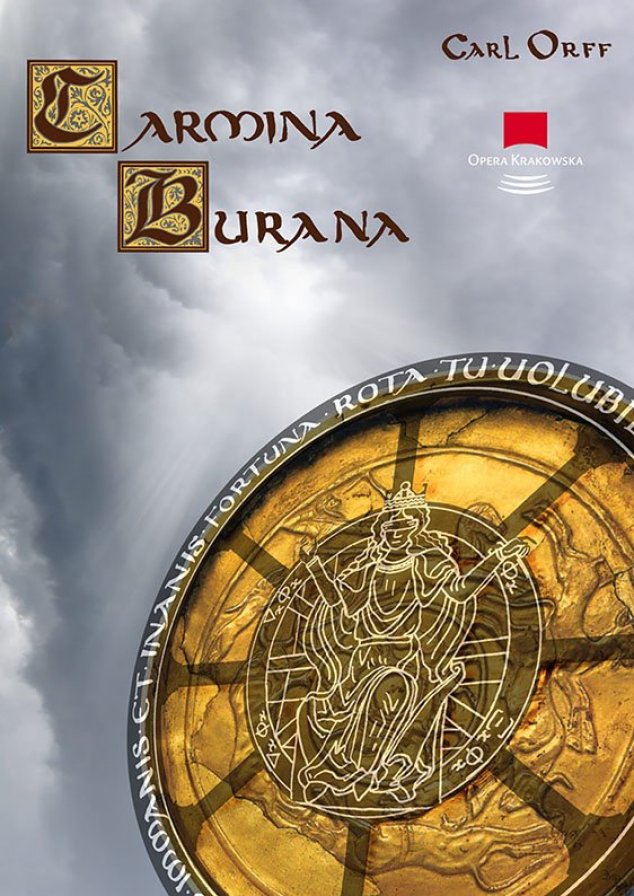
Carmina Burana During the Theatre Night in Kraków!
Carmina Burana During the Theatre Night in Kraków!
We are celebrating the Theatre Night with one of the most impressive compositions in the history of music: the “Carmina Burana” cantata by Carl Orff. The music and ballet performance will take place on 19 June (at 8.00 p.m.) in our seat.
During the Theatre Night in Kraków, on 19 June, we will present the stage version of the “Carmina Burana” cantata by Carl Orff with choreography by Emil Wesołowski and music interpretation by Tomasz Tokarczyk. The première took place in 2018 and was positively received by the audience and music critics. Anna Woźniakowska wrote after the première: “Emil Wesołowski managed to create a performance full of life, movement, throbbing with passion and joy of existence.” Our soloists, choir, ballet and orchestra of the Kraków Opera conducted by Tomasz Tokarczyk will participate in the performance.
The apotheosis of life and affirmation of the world
“Carmina Burana” is a breakthrough work in the life of Carl Orff which, as of the moment of its world première in 1937 in the Frankfurt Opera, has enjoyed constant popularity among audiences and has been regularly featured in concert halls and theatres around the world. The cantata is based on the text from a Medieval collection containing songs of vagrant students and clerics. The manuscript where morality plays, songs about crusades and the end of the world are interspersed with love songs and folk ditties of drunkards and card sharks was found in the Benediktbeuern Abbey, thence the name of the collection and the cantata, which simply means “Songs from Beuern.” From the extensive collection of texts, Orff selected 24 songs and arranged them in a way that they make up a peculiar libretto. The first part comprises songs praising nature and the coming of spring; the second is the commendation of Bacchus, whereas the third one focuses on the delights of love. The motto of the entire composition is the apotheosis of life and affirmation of the world.
The German composer did not work with the original melodies of songs included in the collection, as they were not reconstructed back then. Instead of it, he created his own layer of music from scratch, evoking the spirit of the past epoch and resigning from the accomplishments of the avant-garde for the sake of returning to tradition. Dorota Kozińska writes: “Orff created a suggestion of Medieval music, shying away from chromatics and polyphony, devising ear-catching melodies, modelled on such “exotic” works of the old masters.” The simplicity of melodics, a clear rhythm and illustrative function of percussion instruments make the ensuing songs from the cantata catchy and remembered by the audience for a long time.
The performance will offer an excellent opportunity for learning the depth and the message of Medieval poetry which, as Emil Wesołowski claims, provides a fantastic impulse for choreographic activities.
“Carmina Burana”, 19 June at 8.00 p.m., Kraków Opera (Main Stage)
Free entrance tickets can be collected as of 15 June in the Opera’s Box Office. One person can collect two entrance tickets as a maximum.
More information about the event on the Opera's website www.opera.krakow.pl
Event organised as part of the Theatre Night.
The German composer did not work with the original melodies of songs included in the collection, as they were not reconstructed back then. Instead of it, he created his own layer of music from scratch, evoking the spirit of the past epoch and resigning from the accomplishments of the avant-garde for the sake of returning to tradition. Dorota Kozińska writes: “Orff created a suggestion of Medieval music, shying away from chromatics and polyphony, devising ear-catching melodies, modelled on such “exotic” works of the old masters.” The simplicity of melodics, a clear rhythm and illustrative function of percussion instruments make the ensuing songs from the cantata catchy and remembered by the audience for a long time.
The performance will offer an excellent opportunity for learning the depth and the message of Medieval poetry which, as Emil Wesołowski claims, provides a fantastic impulse for choreographic activities.
“Carmina Burana”, 19 June at 8.00 p.m., Kraków Opera (Main Stage)
Free entrance tickets can be collected as of 15 June in the Opera’s Box Office. One person can collect two entrance tickets as a maximum.
More information about the event on the Opera's website www.opera.krakow.pl
Event organised as part of the Theatre Night.
